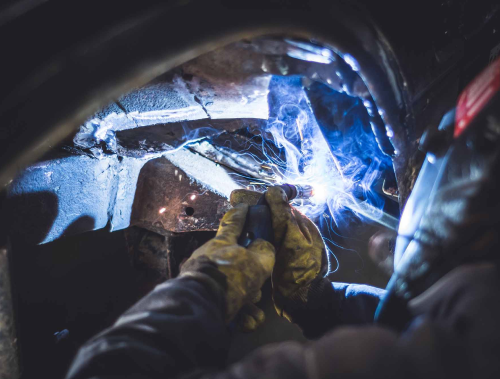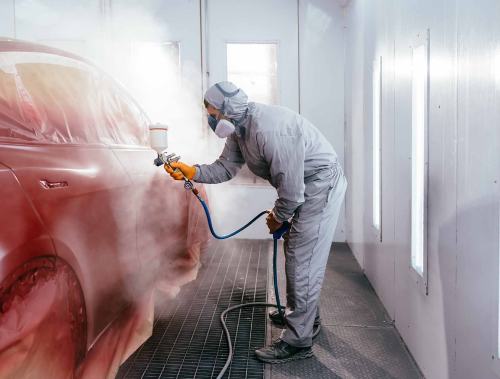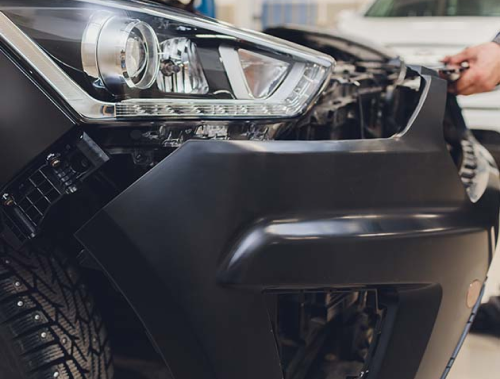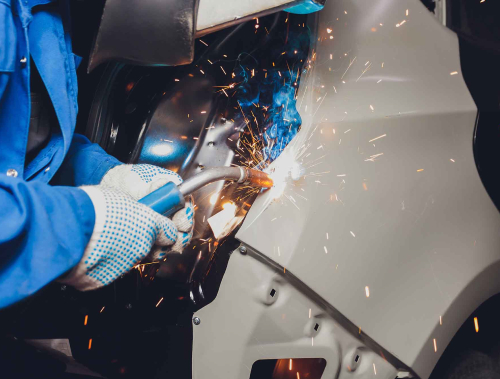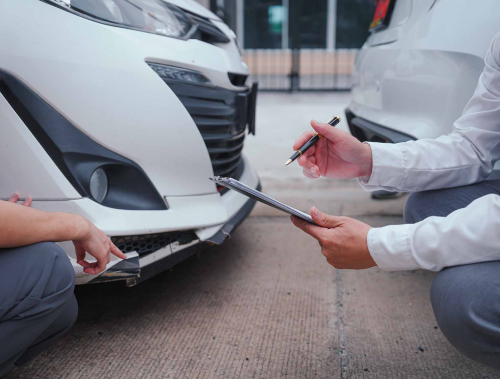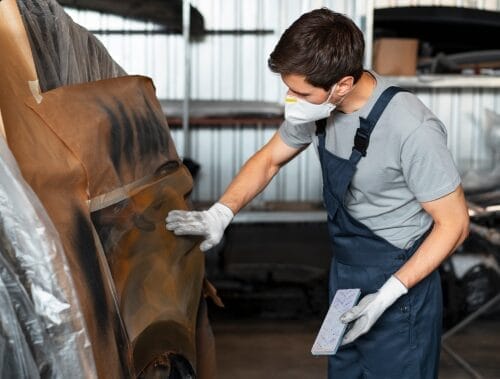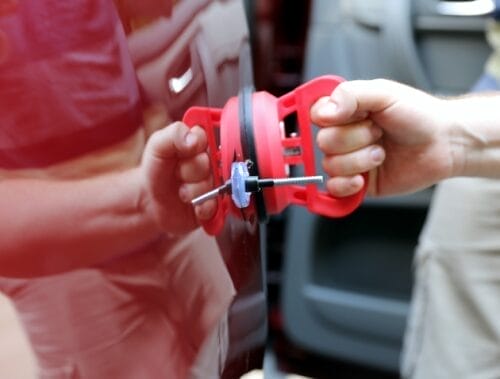Light collision repair is a crucial aspect of vehicle maintenance that deals with minor vehicle damage resulting from minor auto accidents. Understanding what constitutes light collision repair and knowing when and how to address these issues can save car owners time and money while maintaining the vehicle’s value and safety. This guide aims to educate car owners on the various methods available for minor collision repairs, the factors to consider when deciding on repairs, and tips for finding a reputable repair shop.
Understanding Light Collision Repair
Definition of Light Collision Repair
Light collision repair involves fixing minor damages on a vehicle that occur due to low-impact collisions. These damages typically include small dents, scratches, and bumper damage that do not affect the vehicle’s structural integrity. These repairs do not require extensive bodywork or frame straightening.
Common scenarios include parking lot fender benders, low-speed impacts with other vehicles or objects, and minor road incidents that result in superficial damage.
Common Types of Light Collision Repair
Paintless Dent Repair (PDR)
Paintless dent repair (PDR) is a popular and effective method for repairing minor dents to a vehicle without affecting the original paint.
- PDR and How It Works: PDR involves using specialized tools to gently manipulate the dented metal back into its original shape from behind the panel. This technique preserves the factory paint finish.
- Advantages of Using PDR for Minor Dents: PDR is cost-effective, quicker than traditional repair methods, and maintains the vehicle’s original paint, which is crucial for preserving its value.
Bumper Repairs
Bumper damage is common in minor collisions, and various techniques can be used to restore them.
- Types of Bumper Damage that Can Be Repaired: Bumper repairs typically address minor cracks, scratches, and dents. More severe damage might require bumper replacement.
- Techniques Used in Bumper Repair: Techniques include plastic welding for cracks, sanding and repainting for scratches, and reshaping for minor dents.
Scratch and Ding Repairs
Addressing scratches and dings promptly can prevent further damage and maintain the vehicle’s appearance.
- Methods for Fixing Minor Scratches and Dings: Methods include touch-up paint, buffing, and polishing for minor scratches. For dings, PDR or minor bodywork might be used.
- Importance of Addressing These Issues Promptly: Prompt repairs prevent rust and further damage, preserving the vehicle’s appearance and value.
Factors to Consider When Deciding on Repairs
Assess the Severity of Damage
Determining the extent of the damage is crucial when deciding whether to repair your vehicle.
- How to Determine the Extent of the Damage: Start with a thorough visual inspection of the affected areas. Look for obvious dents, scratches, and any misalignment in the body panels. Check for hidden damage by opening and closing doors, hoods, and trunks. Listen for unusual noises and inspect the undercarriage if possible.
- When to Consider Professional Assessment: If you are unsure about the severity of the vehicle damage or if it involves critical areas like the frame or suspension, it’s best to consult a professional. A qualified technician can provide a detailed assessment and uncover issues that might not be easily visible.
Impact on Car Value
Minor damages can significantly impact your car’s resale value, making repairs an important consideration.
- How Minor Damages Affect the Resale Value: Even small dents and scratches can make your car appear neglected, which can lower its market value. Potential buyers often perceive minor damages as a sign that the vehicle may have other, more serious issues.
- Weighing Repair Costs Against Potential Value Loss: Consider the cost of repairs compared to the potential decrease in resale value. Sometimes, investing in repairs can yield a higher return when you sell the vehicle. It’s essential to get an estimate for both the repair costs and the car’s current value with and without the damages.
Functionality and Safety
Ensuring that your vehicle is both functional and safe is paramount.
- Importance of Ensuring the Car’s Functionality and Safety: Minor damages can sometimes affect critical components of your car, like sensors, lights, and safety systems. Ensuring that all these elements are functioning correctly is vital for safe driving.
- When Minor Damages Can Lead to Bigger Issues: Small issues can escalate if left unaddressed. For example, a minor dent might lead to rusting, which can weaken the structural integrity of your car. Addressing these issues promptly can prevent more costly repairs down the line.
Finding a Reputable Repair Shop
Choosing the right repair shop is crucial for ensuring quality repairs and avoiding unnecessary expenses.
Get Multiple Repair Estimates
Obtaining multiple quotes can help you get the best deal and understand the scope of the needed repairs.
- Importance of Comparing Quotes from Different Repair Shops: Different shops may offer varying prices and levels of service. Comparing quotes ensures that you are not overpaying and helps you understand what each shop offers in terms of parts, labor, and warranty.
- Tips for Obtaining Accurate Estimates: Provide each shop with the same detailed information about the damages. Ask for itemized quotes that list parts, labor, and any additional fees. Make sure to inquire about warranties on the repairs.
Check Reviews and References
Researching a repair shop’s reputation can give you confidence in their ability to perform quality work.
- How to Find and Evaluate Online Reviews: Look for reviews on multiple platforms like Google, Yelp, and the Better Business Bureau. Pay attention to common themes in the feedback, such as the quality of work, customer service, and timeliness. Be wary of shops with consistently negative reviews.
- Asking for References from the Repair Shop: Don’t hesitate to ask the shop for references from previous customers. Contact these references to ask about their experience and satisfaction with the repairs.
Ensure Proper Licensing and Insurance
Ensuring that the shop is licensed and insured protects you from potential liabilities and ensures professional standards.
- Why It’s Crucial to Choose a Licensed and Insured Shop: Licensed shops adhere to industry standards and regulations, ensuring quality and safety in their work. Insurance protects you in case of accidental damages or issues that arise during the repair process.
- How to Verify the Credentials of a Repair Shop: Ask the shop to provide proof of their licenses and insurance. Verify these credentials with the issuing bodies or organizations to ensure they are valid and up-to-date.
Conclusion
Deciding on light collision repair involves careful consideration of the severity of the damage, and its impact on vehicle value. By assessing the damage accurately and choosing a reputable repair shop, you can maintain your car’s appearance, value, and safety. Making informed decisions about light collision repairs will save you time and money in the long run.

